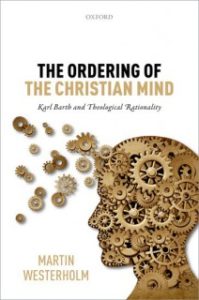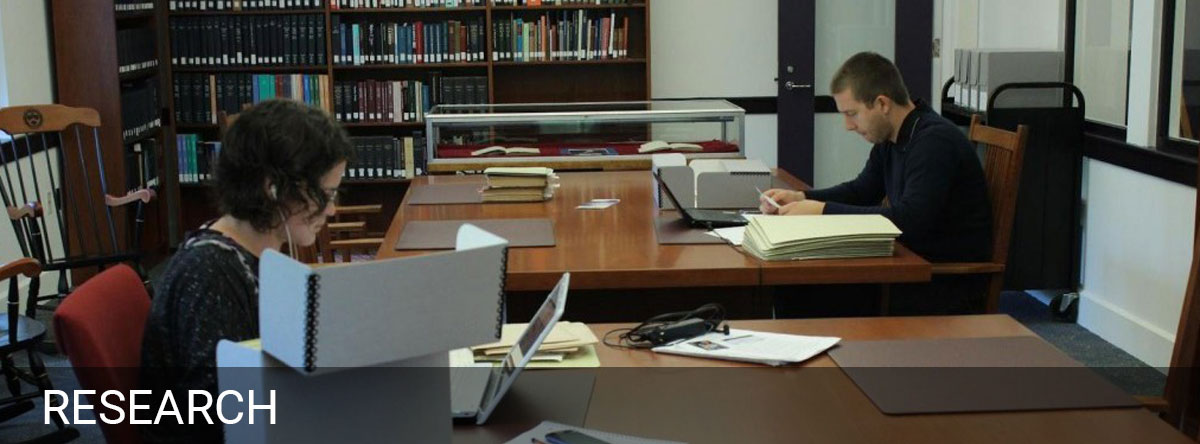 The Ordering of the Christian Mind: Karl Barth and Theological Rationality
The Ordering of the Christian Mind: Karl Barth and Theological Rationality
Martin Westerholm. The Ordering of the Christian Mind: Karl Barth and Theological Rationality (Oxford: Oxford University Press, 2015), xiii + 249 pp. $115.00 (hardcover).
Reviewed by Laura Lysen (December 05, 2019)
It is a regrettable truism that theological disagreements easily form into battle lines that exhaust their capacity (or charity) for innovation as they descend into stalemate. In The Ordering of the Christian Mind, Martin Westerholm identifies the central contemporary battleground of theological reasoning and redraws the lines in one of its most polarized centers: debates concerning Karl Barth’s theological reasoning. Responding in particular to the entrenched perception that Barth’s theology does not allow for an adequate account of human reasoning, Westerholm offers a fresh depiction of Barth’s ordering of Christian thought in hopes of communicating its theological and spiritual cogency and power. Westerholm’s persistent impulse to reframe and contextualize enables him to prise open “stale impasses” within Barth scholarship itself: between continuity and discontinuity, dialectic and analogy, realism and critical realism, thorough modernness and ongoing meaningfulness in Barth’s work (233).
Westerholm lays out Barth’s ordering of Christian thought by unfolding how Barth’s own thinking came to be reordered through two defining sets of engagements: his early work with Paul and his later engagements with Anselm. Much of the substance of Westerholm’s argument derives from his treatment of these two moments as essentially generative for Barth’s thought and as continuous with one another. Westerholm shows how the continuity between these moments reaches across developmental discontinuities to trace a vision of theological rationality that deepens as it develops. Key to this vision, as Westerholm presents it, is Barth’s shifting of the question of theological knowledge from the confines of modern (and contemporary) epistemological inquiry to a fundamentally moral and spiritual inquiry, indeed precisely to the question of how creaturely thought is to be ordered in relation to what it knows (chapter 1). Human processes of rationality, in other words, are integral to Barth’s theological interests. On the strength of this reorientation, Barth ventures into the ordering of creaturely thought in correspondence to the divine reality that it knows, and comes to understand, in faith (chapters 2-5).
As a consequence or corollary of the doctrine of justification, Barth first discovers in Paul a noetic standpoint of faith that takes as the principle of its knowledge God’s own activity rather than the conditions and possibilities of faith itself (chapters 2-3). Just as crucially, Barth finds in Paul that God truly can be given to human knowledge in such a way —that is, in promise—as to remain sovereign. This frees Barth to speak quite positively and substantively of how Christian thought is to be ordered by this sovereign presence. Westerholm synthesizes this ordering through three conceptual categories that emerge from Barth’s Pauline engagements and mature through his Anselmian reflections. First, the above standpoint of faith orders Christian thought always to proceed from the position of the eschatological (rather than the empirical) subject, from the position of union with Christ. From here Barth identifies concrete points of orientation for thought. These points of orientation are both material, for instance, in the life and work of Christ and the confession of the Creed; and formal, as in the approach to objects of knowledge in view of their beginning and end in God rather than in a delusive and enslaving immediacy. The very freedom of thought, with its Kantian baggage of autonomy and spontaneity, is here redefined in terms of the obedience of faith.
This freedom of thought takes center stage as Barth turns to Anselm (chapters 4-5) to comprehend faith’s movement to understanding. This turn to Anselm, Westerholm observes, is Barth’s original response to the charge that he was eliding rational processes of “appropriating” the faith (147-51). If faith is fundamentally moral or self-implicating, then faith’s movement to understanding entails the movement of creaturely freedom, in thought and in life, into correspondence to the freedom of God apprehended in Christian teaching. To understand this teaching is again not to inquire into the epistemological force of its claims (“whether” they are true) but to ask after its moral force in shaping creaturely thought in accordance with its witness (“how far” they are true; 219, 233). In this movement, the divine reality becomes not just a procedural or noetic beginning point but the whole substance in which creaturely thought lives, moves, and conceives the possibilities of its existence: indeed, if the standpoint of faith reflects the mind’s sharing in justification, then the movement of understanding, Westerholm suggests, comprises the mind’s sanctification. This completes Barth’s account of thought as a moral and spiritual ordering that can know God in no other way than by being conformed to God. It is not the freedom of autonomy, which justifies itself at a remove from God, but the freedom of obedience—finally, of love—that enables and compels a movement like this. Westerholm concludes with the provocative suggestion that this same choice between freedoms, either autonomy or obedience, may be the real dividing line that Barth has passed on to contemporary thought. Nothing but the latter, Barth (and Westerholm) suggests, can order the mind to acknowledge the truth of God.
The avenues for exploration that open up within this work are more than can be named here. It could be particularly significant, not least in light of contemporary “impasses,” to explore the full methodological range of the “freedom” of thought that orients itself by the obedience of faith. Westerholm’s account of credal confession as offering for Barth “no more than points of orientation”—in Barth’s words, “border posts and anchor buoys” for theological reasoning (232)—already seems to suggest a theological movement somewhat different, and potentially freer, than the expectation (often framed in Barthian terms) that dogmatic claims serve as determinative “starting points” for any theological analysis. It would indeed have been invaluable, if infeasible within this single study, for Westerholm to consider implications such as this on a practical level. “How far” indeed, as a further example, should one understand the displacement of epistemology by moral concerns? Once one has taken a step back with Barth and reframed the possibility of truth, morally and theologically, does this reframing return any implications to the more nitty-gritty assessments of theological truthfulness that have been initially set aside? Finally, what might it mean to clarify the relation between “noetic” sanctification, the overwhelming interest of this work, and the sanctification of Christian life as a whole? Where the relation is addressed, Westerholm tends to suggest a one-way movement from thought to the human life that it orders. What might be said, conversely, concerning the bearing of life on thought? Does this question need greater attention in light of the troubling coexistence of reordered thought and disordered relationships in Barth’s own life, to say nothing of our own?
The Ordering of the Christian Mind is a dense, rich, careful study that rewards the attention it requires. Indeed, it is no nominal survey but a complex symphony of concepts and trajectories that, while carefully organized and narrated, draws long arcs in the material that presume commitment and capacity in the reader to follow them through. The carefulness and clarity of the work, however, makes it accessible and rewarding not only to Barth scholars but to any relatively advanced reader with a stake in Barth studies or in the questions of theological reason implicated here. The book is no less rewarding as it offers, through the particular lens of Christian thought, a rich review of many of the foundational and abiding insights of Barth’s theology. It will take specialists in Barth to assess the particulars of this significant essay in ordering his thought, but there should be little doubt that it will merit and reward the effort.
Laura Lysen, Ph.D. Candidate in Theology and Ethics, Baylor University Department of Religion
The views expressed here are strictly those of the author; they do not necessarily represent the views of the Center for Barth Studies or Princeton Theological Seminary.


